Interview with Colin McCann of Vulture Feather
Near-death experiences and the mystery of finding joy in music after a long break from it
When I initially came across Vulture Feather it felt as if they were a group that I had been waiting ages to hear. Their sound was immediately gratifying in its simplicity, while still being grand in scope. I’ve heard other writers describe them as creating songs that solely focus on ‘the good part’, and that’s pretty spot on as far as I’m concerned. They have a way of finding a singular melody for each song and riding it out until it’s fitting conclusion.
So upon hearing they were once again heading into my corner of the Northwest from their rural abode in the mountains of Northern California I reached out to singer/guitarist Colin McCann to see if he would be up for chatting at the show. He was initially a bit cagey, and at the show somewhat reluctant to agreeing to the interview so I let it go. I messaged him again a couple days after the show to follow up and we made a plan to talk once he was back from their tour. I found out later that during that first chunk of the tour he was battling the flu, but didn’t want to bail on any of the shows despite feeling quite exhausted.
Once we finally had the chance to get on the phone he became far more open and effusive, and went into great detail regarding the profound life experiences that, for a number of years, led Colin to completely abandon music altogether, as well as re-discovering the joy of playing which resulted in Vulture Feather coming together. It’s a story that I feel privileged to have been shared with me given the overwhelming personal impact it had upon Colin, and one which I’m pleased to be able to share with you.
You had mentioned you’re a bit reluctant to doing interviews. Is that because the standard questions and discussions get tired, or do you not really like talking about music?
I guess neither of those things. I guess I would say it’s maybe due to my weariness of the desire to talk about that stuff. Or the idea that these insignificant things are important somehow. Or maybe a weariness of my own desire to validate myself or something like that. Does that make any sense?
Yes it does. The way I try to approach these interviews is not as part of the music PR machinery, but to engage in more of a natural conversation. However, how do you force a natural conversation with someone you don’t really know.
I guess you just ask questions and see where it goes. But I do think your last question was a good one, and it’s pretty central to what’s on my mind with most things. It’s sort of this desire to be liked by others, which I think we all have on some level, and then bringing all this importance to one’s point of view, or opinions, or memories of things, or other people’s memories of things in the form of music or art- those things exist semi-permanently, or longer, than a lot of things in terms of ideas that are recorded, catalogued, or archived. Indulging in that sort of self-importance, or delusion that one persons opinions or endeavors are more interesting than anyone else’s.
So when I chose who to interview I approach it first as liking their art or music, or whatever and then I ask myself, ‘why do I want to interview them?’ There’s plenty of bands I love but I don’t feel like I need to talk to them because I’m not sure I can get anything out of them that I don’t already know. But if I can figure out some general curiosities that can benefit, or add to, the creative endeavor of what I’m already doing. My point is always to expose people to music they might otherwise have never heard of because I think they’re great. That’s my main thrust of approaching the people that I do.
I understand that completely and I think that’s wonderful. I think anything from an interview on MTV or Rolling Stone, or the billions of zines that have come out, is fine. I’m coming at this from my own standpoint. I’m not passing any judgment on the whole concept of bands and music and the people that make those things because I’m interested in those things too. I think it’s a language of a larger thing and it’s just one specific version of the big thing.
I think what I’m getting at is you had asked me why I’m reluctant and I’m reluctant because I’m weary of my own self-interests and my desire to validate my own existence, which I think is a faulty course for me. But here we are, so let’s do it.
(laughs) OK! Well it seems that maybe not on your first record, but more on this newer one I hear a lot of themes of joy and wonderment. And I don’t think we’re too far apart in regards to music scenes we came up in and probably at a similar time as well and we’re used to this idea that punk is angry. But I listen to Vulture Feather and there are a lot of songs where what I take away from it is joy in your surroundings. I find that to be a cool element because it’s different than what I’m used to.
I could add to that because it’s an interesting topic to breach. John Lydon said anger is an energy, like a really powerful song, and at the time depending on where you are in your life that really resonates as a person who came up in what is ‘punk’. But punk in it’s purest form is that all barriers and boundaries fall away. The reason I was interested in punk is because I was going for this sort of unnameable thing that I knew existed in my heart or in my mind. And it also existed in every other apparent thing. All things that we either find joy in, or beauty in, or things that cause us to have anger towards. Everything seemed to be emanating from this one inscrutable, unnameable thing. You can listen to Minutemen songs and there’s a lot of joy in those songs. When I was in 8th or 9th grade and I discovered the Minutemen that song “Bob Dylan Wrote Propaganda Songs”- there’s this sadness and this joy happening at the same time in that! And every song that ever struck a chord in me in all sorts of genres of music…. So what I’m getting at is that I was a kid, just a youth. But that form of punk became a vehicle at that time and one thing I realized is that I was so angry then. I had all this rage and couldn’t pinpoint what it was focused at. It was just sort of there and would erupt, even when I would be alone. It was like an engulfing flame of rage with no specific subject or object.
So I remember when I first started playing in a band, and it was with Brian who now plays with me in Vulture Feather, we were able to rig up a microphone to some sort of amplifier and we started writing and playing songs, and I just channelled all that into those moments. I realized in my daily life that unnameable rage just quelled and softened. It wasn’t gone, but it had a chance to release.
From there the music just evolves and people who I know who made music that was very abrasive and very angry later in life just made the most beautiful, soothing music. That’s kind of a digression, but what I’m getting at is coming back to that thing that got me into punk, which is that inscrutable, unnameable essence; the essence of all experience. It’s what pushed me to continue to make music in whatever form it was and it also guided me at times to make no music and just be silent. Punk is a fine label, and it’s a beautiful form, and I don’t know where it’s boundaries lie, or if there are any. But beyond that there is music and music is a way to convey, to understand, and to experience that essence beyond concepts.
You touched on a couple things I was going to address either way so I think I can segue into that, and kind of combine a couple questions together. Some of the songs and lyrics I hear on your records feel reflective of where you’re at geographically. I always like to bring this up with bands because I really like the idea of a place influencing a sound. So the place where you’re at, it’s very rural, plenty of mountains and forests. But you came out of living in Baltimore for a long time and playing in the band Wilderness. So does geography play a ole, and I also wanted to get an idea of what brought you out West, as well as this really long pause between when Wilderness stopped and Vulture feather began. I know that’s like three questions but I feel like there’s some connective thru-line there.
Yeah. I’m not really sure about the influence the geography or the surroundings have on the music. I think that every band, every musician, is probably influenced by their surroundings- what they hear, what they see, just the reverberation of the unseen stuff that dwells in any place. I guess, ultimately, it’s going to reflect that. But like you said, Wilderness was a band that existed in an urban place and in some circumstances a rough, dystopic, urban reality on a large scale in Baltimore. But the name of the band was Wilderness and that wasn’t an accident. We weren’t pining for the beauty of untouched nature, or something like that. The idea was sort of back to that essence that is ubiquitous and it’s in that urban, dystopic Northeastern wasteland just as much as here where there’s allot of trees, and water, and mountains. So I’m not 100% sure exactly how much that plays a role. You may be a better judge of that because I’m just here. I am where I am. I do think it’s conducive for being creative. I also remember working fifty hours a week in Baltimore and still doing a band and doing that band for like 10 years, practicing two to three times a week on the same days, the same times, and trying to get time off from work to play shows and tour. It was really great and very fruitful. It was a good creative existence there.
It’s very different here, it’s very looser in that sense.
And so yes, there was this long break between Wilderness and Vulture Feather. I also had a solo project and made a record between those times and I toured a lot. I toured the west coast a couple times and the US once. That happened around 2013 or so. And there was also another band after that in obscurity. I played in a band with my wife and some dear friends. It was this instrumental sludgy surf thing and it was great. It was a really fun band to play in. And we toured a bit and put out a cassette. So I wasn’t totally silent, but I also didn’t put a lot of effort into those projects. I didn’t strive very much to get the music out there, I thought it would just happen by performing and stuff like that.
Around 2015 or so I had a really pivotal experience in my life and I made a conscious decision to not play music, or even listen to music, or read books, or watch anything on a screen. I kind of carried that for about five years. I just went into this very quiet, gestative phase. It wasn’t really for creative purposes. I was trying to preserve my sanity, in a sense, and also work towards a greater understanding.
That has to be an odd thing to undertake, especially now when it’s so difficult to just disconnect yourself.
It is. But I was fortunate enough to have a very traumatic experience, but it wasn’t traumatic in the way that people think of that word usually. I just had a really insane vehicle accident that, by all accounts, I shouldn’t have survived. So I had that experience and before it was even over I had this moment, like during the accident occurring. What happened was I was in a pick-up truck and I drove off a bridge into a river, like twenty feet vertical drop into this creek at night. It was really cold. And while the truck was teetering off the edge of this sketchy bridge that, at the time, had no guardrails on it, I realized at that moment where it was clear to me, ‘I’m going over’ that somewhere in my psyche this happening, like it had happened before. And at the same moment I also realized ‘everything will be different now’.
And what had led to that accident was an increasing drug and alcohol addiction that had been picking up steam slowly, but also with greater inertia as the years went on. So that was a huge part of it. So eventually the truck went off the bridge and landed upside down in the river, crushed the cab and I was stuck in there with a smashed shoulder, and a shattered collarbone. It was pitch black and water was rushing into there. I felt like I was crushed in a tin can. And I heard this rushing, whooshing sound coming through a hole in the windshield. I lost consciousness for a brief second and I hear this sound and somehow I just kind of squeezed out of my seat and through this hole in the windshield. I cut my face all up on the glass while getting out, but I got out and then stood up in this rushing river in the darkness. It was in early March and 30-something degrees outside. So I stood up and realized that everything has to be different and I have to change everything.
That’s a wild anecdote. In my professional career I work with a lot of people who have experienced trauma in those near-death situations, as well as people who have incurred traumatic brain injuries because of accidents like yours, and often they don’t have any memory of the event. It’s kind of uncommon. It often just gets blocked out of memory and retreats to the subconscious. So the fact that you have a very vivid memory of it is wild. Secondly, it totally makes sense as to why you’d completely disconnect for awhile after that because people need time to reset.
As far as the ‘remembering’ part there’s the memory of me rolling off, and not only that, but sometime after the accident I was sitting around the fire with my wife and we recalled a period of time where a friend of ours that we were spending a lot of time with hanging out and drinking out in the woods. Every time we would see her she would say to me, ‘I had a dream about you. I have these dreams and you need to listen to me- you need to stay away from bridges. you need to be careful around bridges.’ She would get this crazy look in her eye and it would really perturb me and I would ask her, ‘why are you telling me this? Leave me alone!’ And it’s not like she said it once, she would tell me this every time she saw me for like a month or so. And I forgot about that until both my wife and I had gained some sobriety and some quietness and began to undertake more positive, beneficial actions in our life. And at that moment, sitting around the fire, it kind of popped into our heads. So anyway, there’s this part of me remembering it, and this part of this person who had dreamt of it. So, for me, this is a really kind of base example that things like time and consciousness and sentient experience is without any limits. And the way that we understand and perceive what’s going on is pretty off-base of how reality really is. Or this thing we can point to as reality.
Anyway, I’m leaving a lot out of that story, but that’s sort of the preamble of it. But to give you an idea, yes, there was a break between Wilderness and Vulture Feather, but there was also a break from this other band that existed, to my solo project, and then five years of just nothing really. It may have been more than five years. I think I called Brian about starting what became Vulture Feather around 2022. That was sort of the impetus for it- that period of silence and everything that took place during that period. Whatever the groundwork that was laid at that time is still what I try to work from in terms of my daily life, but I’m not always successful.
Did you find it tough to get back in the saddle, so to speak? Performing live is a physical thing, particularly around muscle memory of playing, singing, and so forth. And you’re in a pretty active band that tours quite a bit, so to not perform or tour for years and then jumping back into it I imagine took some readjusting?
That’s a good question. Playing live in this band is a way that I naturally gravitate towards and it can be kind of exhausting. At the same time you have to work up to. It requires rehearsal but you can’t really attain the same intensity in practice as you get when it’s live. And then maybe live you can’t hear the vocals, or your foot gets caught in the cables, or something. So it takes some working up to. This recent run of shows we did was around 24 shows and the first one we did I rolled out of bed and had the flu. That first week of shows I basically had the flu and a fever and didn’t really eat for awhile. So the first show I was really weak, the second show was about the same. I had chest pains and was short of breath, and by the time we played the third show in Portland, which is where we saw each other, and it was not easy. But I was starting to get better. After about a week my strength was back. But I think everyone experiences that- working up to it.
I also watch bands that have this sort of power and intensity without doing much physically. I remember seeing the band low in Baltimore. They were touring with the band Godspeed! You Black Emperor and it was this tiny little spot called the Talking Head. It was just a hole in the wall downtown. I remember going to that show and smoking a little pot and then going in, sitting on the stairs, and then Low started playing and it was one of the heaviest things I ever witnessed, but they were so mellow at the same time. That sort of thing is what I’m getting at. When we play this music it feels urgent to me and can be physically tiring. It’s a pretty good feeling when it’s over.
So to wrap up you had this long period of time when you were away from things. What made you want to get back at it?
It started with listening to music. I hadn’t been listening to anything. My wife really wasn’t either. But we worked together in this cabinet shop together pretty much every day. One day she was like, ‘I’d like to listen to some music while we work if you don’t mind’. And I had just gone through this period of relaxing and engaging in activities that were beneficial somehow. As time had gone on I felt a greater ease in my heart. So anyway, she wanted to listen to some music and I said, ‘yeah, put something on’. And I started hearing stuff I’d never heard before and following that chain, as well as stuff from the past that I hadn’t listened to in a long time. And it was incredible, the power it had on me, just washing over my heart, making sad and joyful; everything, ya know? Really feeling it fully.
So it started with me listening to music again in the shop.I started to look forward to it each day. I started listening to music that had happened while I was away from it all and really loving it. And then one day I just picked up my guitar that was all dusty and cobwebbed, and I have always tuned the guitar in a way that I liked and thought was interesting. I’ve always used alternate tunings and things I’d make up. So I tuned the guitar a certain way and it ended up being the tuning I’ve used for all of Vulture Feather and I just started playing, and it was flowing. It felt great. I did that for a few days heavily and then ended up texting Brian. It was kind of cray because we hadn’t played together since Wilderness, so it had been almost 15 years. I asked him if he wanted to jam and he didn’t hesitate. He said, ‘yeah’, so we got together at this barn near his farm and we plugged in some amps and played, and never really looked back. It just became a regular thing immediately. So we need to acknowledge music and ask ‘what is it? What is music?’ It’s completely mysterious. What form does music take. Some physicist could describe what’s happening with notes struck and then played through speakers, and what the human voice does by breaking down barriers and goes further than language to convey a message or an essence that can’t be conveyed with normal language.
I’ve heard people say music is a language, but I think it’s more than that. I think it’s a total mystery. But I think it’s also this incredible place where almost everyone can agree that magic springs eternally. What do you think it is?
I think it’s all those things. I definitely think there’s mystery in the way it can stir emotions and why it does that.
I think it is. There’s a reason why I think music first made it’s way into our experience through spiritual quests, like to praise and rejoice, and express the utter misery of human experience, as well as the boundless joy that comes with it.


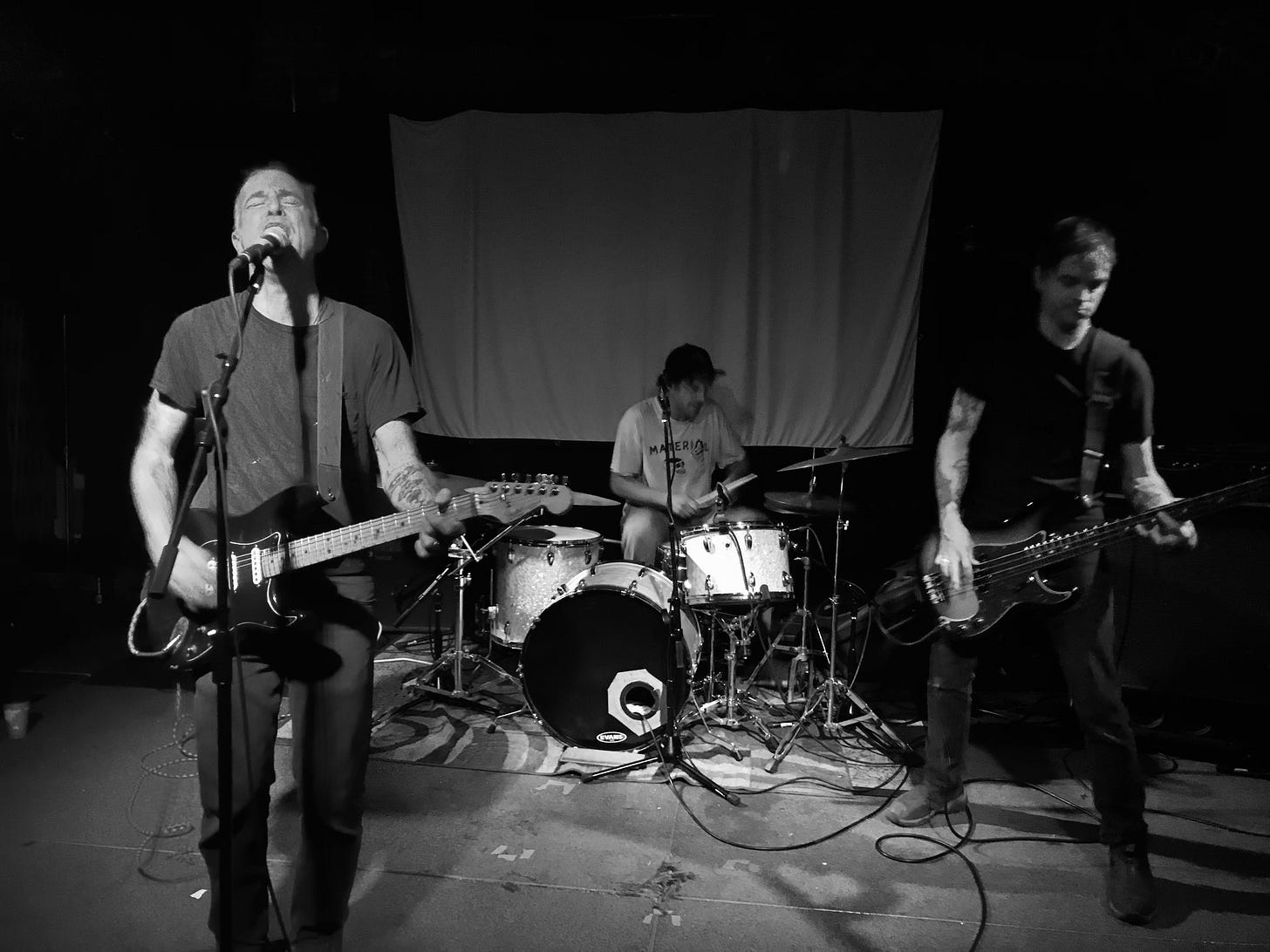
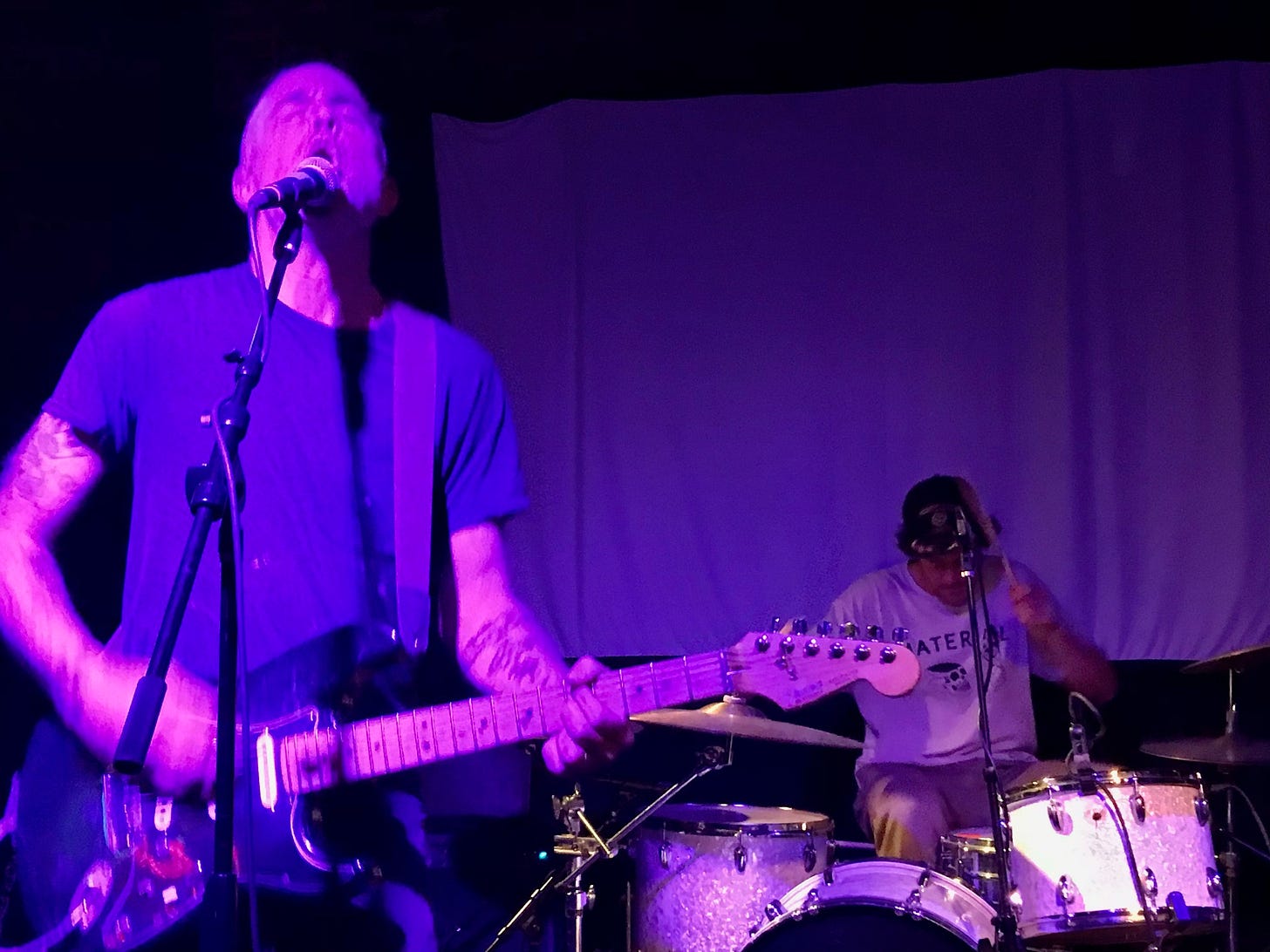
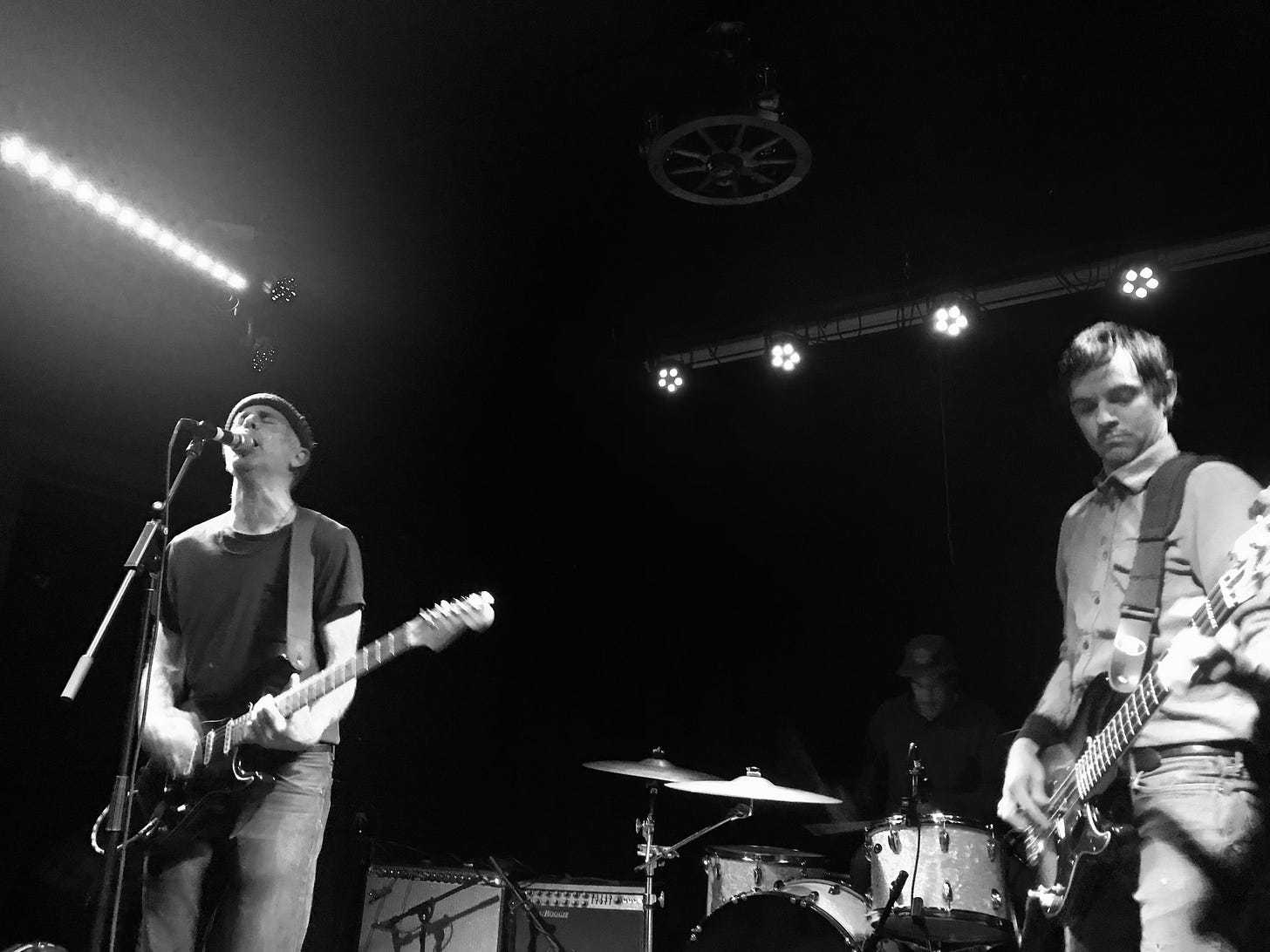
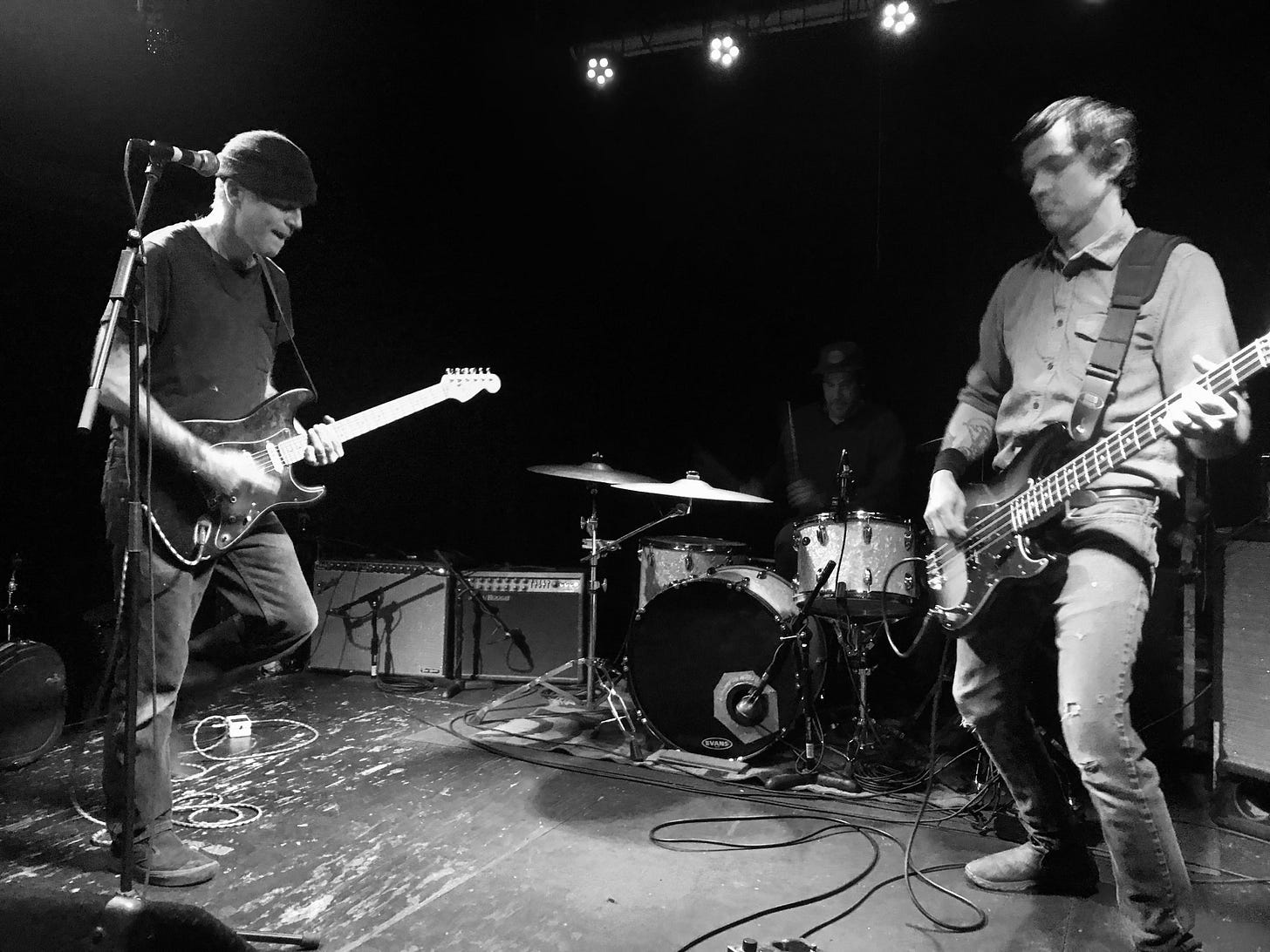
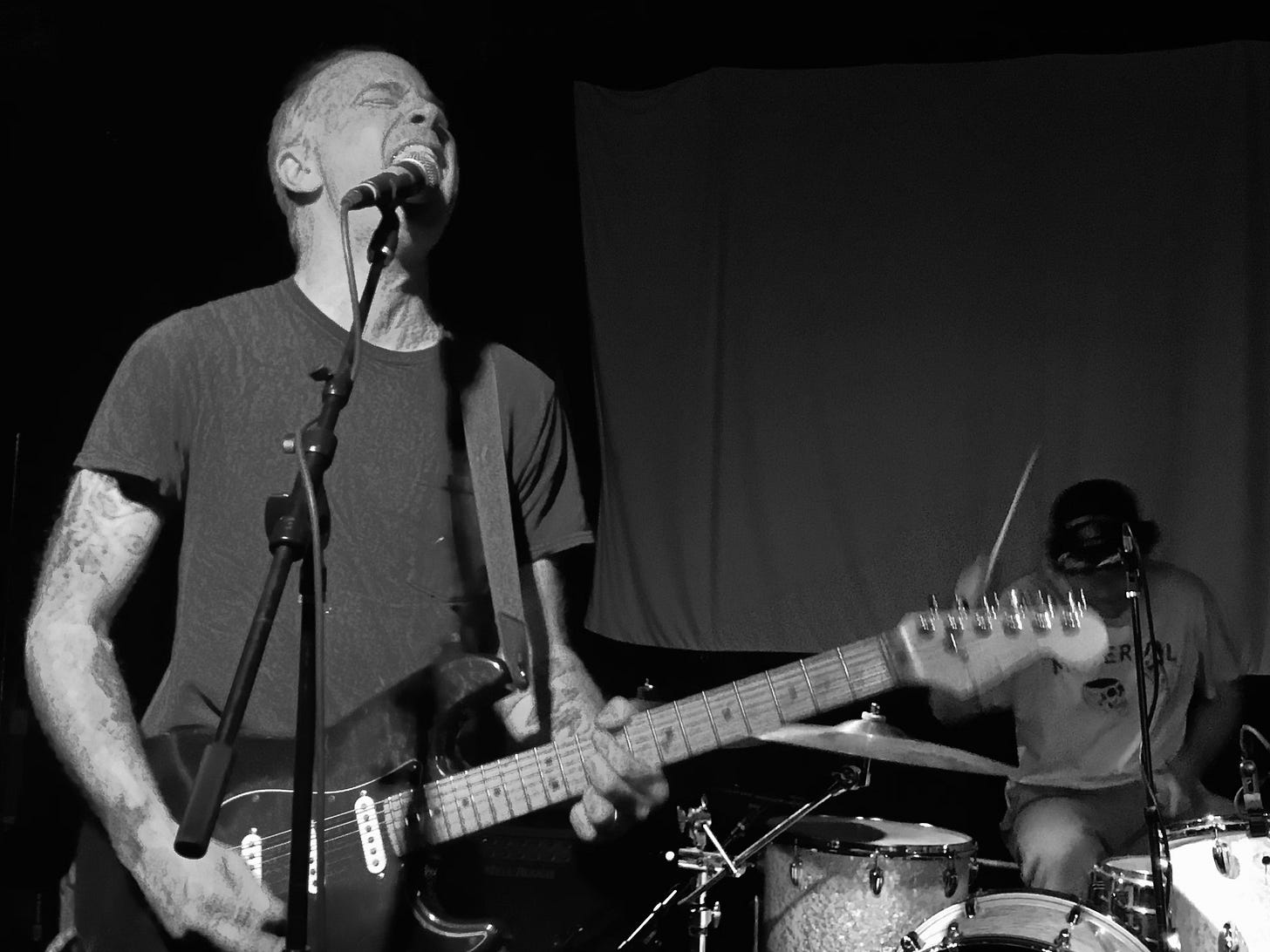
Great interview! Love the new record.